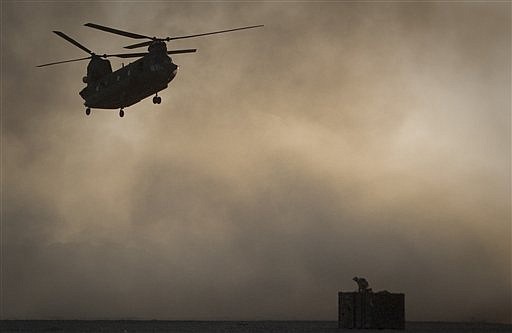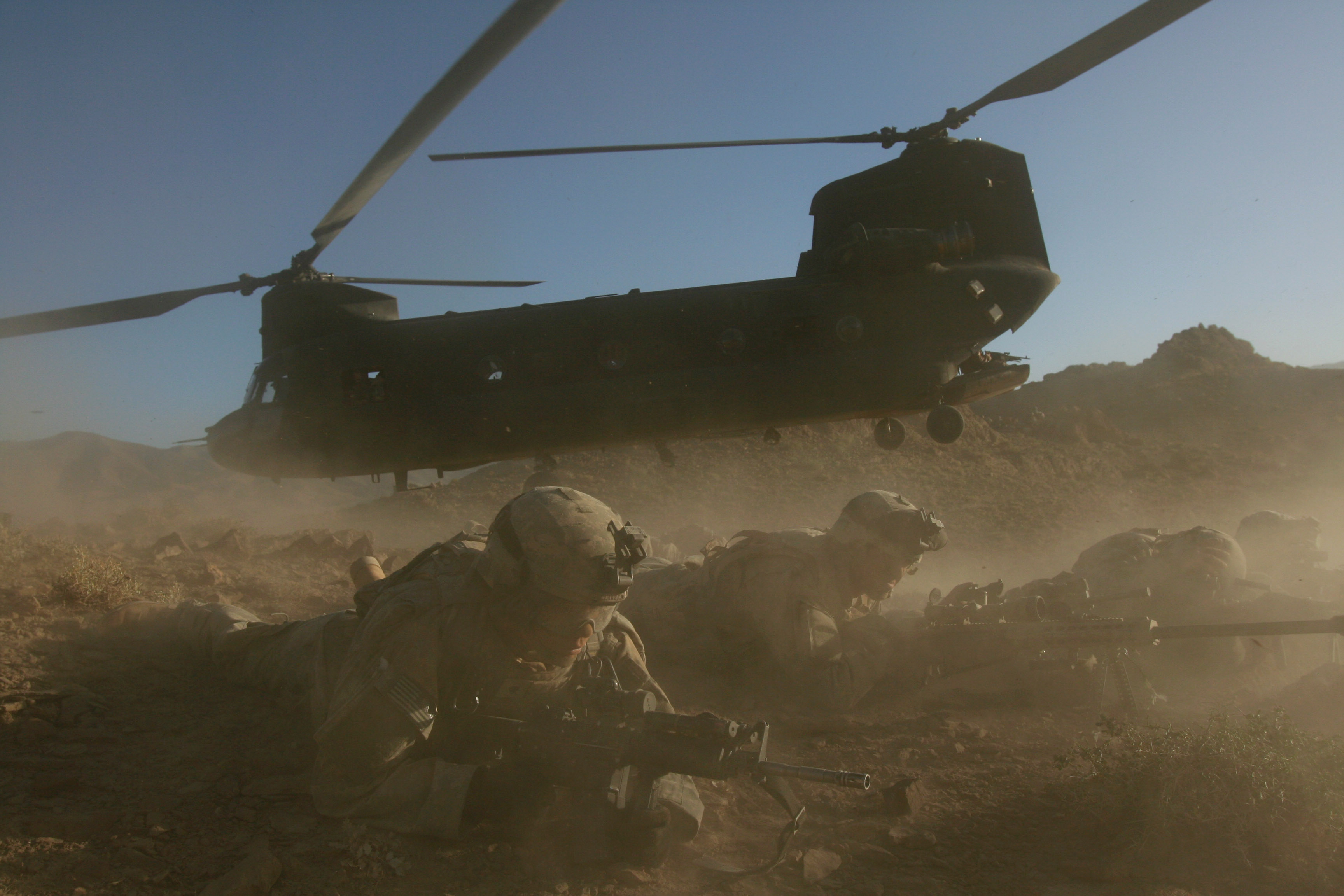KABUL, Afghanistan - The 30 U.S. troops killed when their Chinook helicopter was shot down Saturday in western Afghanistan - many of them Navy SEALs - were fighting a war rarely talked about.
They were not battling Afghanistan's ingrained corruption or building new roads or crafting nascent local governments. They were part of a group of elite troops that operate stealthily in the night and go after the U.S.' most wanted targets of the war.
It was the worst single-day toll for American forces in Afghanistan since U.S. troops entered that country nearly 10 years ago, and one of the largest tolls in a single incident of either the Afghan war or the fighting in Iraq. Seven Afghan troops also died in the crash. An interpreter also was killed; in all 38 people and a SEAL dog died in the crash.
The Associated Press reported that some of the SEALs were from SEAL Team 6, the same unit that provided the troops for the May 2 raid that killed al-Qaida founder Osama bin Laden, but that could not be verified independently. The Pentagon released no information on the dead as officials worked through notifying 30 families of their losses.
Shot down
U.S. officials in Afghanistan provided no details, but a senior Pentagon official in Washington confirmed that the helicopter had been shot down, though he said he could not provide details.
Every night, scores of helicopters like the blasted Chinook leave bases amid Taliban strongholds in remote areas, chasing local Taliban or terrorist leaders. Their activities rarely get reported, even when they are successful, with the notable exception of the May killing of bin Laden.
Instead, the discussion about the war focuses on whether such captures and kills by SEALs lead Afghans to reject the insurgents gripping their communities and instead to embrace a democratic system that is less likely to house insurgents.
Afghans have come to expect such stealthy operations.
A villager in the area where the helicopter went down told McClatchy he heard rocket fire. He said he later saw the helicopter burning in an orchard about a half-mile from his home.
"Smoke was rising from the helicopter," Mansour Majab said.
Frequent raids
Majab told McClatchy that night raids by U.S.-led forces happen frequently.
"Every night the helicopters are flying over our house," he said by phone. He said that on Thursday U.S. troops conducting a night raid in another village killed three Taliban fighters.
He said Taliban forces fired a rocket at the helicopter that later went down.
"I was in the house and taking some food for the guests who were in our house. I heard the sound of a rocket firing," Majab said. "Later we saw a helicopter downed in an apple and apricot orchard about a kilometer away. There is a river between our house and the place where the helicopter was downed. Smoke was rising from the helicopter till morning."
Majab said that "most people are awake during night because of night raids" and that the region is dominated by the Taliban. "From each house at least one person is with the Taliban," he said.
In a conflict defined by U.S. troops who spend as much time nation-building as destroying the enemy, those killed Saturday were among the few forces that focus strictly on capturing and killing an enemy.
Years to train
That so many of the military's most elite forces were killed will have a marked impact on special operations in Afghanistan. It takes years to train a Navy SEAL unit, and those SEALs killed on the Chinook will reverberate across the force.
Indeed, in a military that has been fighting this war for a decade, the news was met with shock at military installations across the world. At U.S. Special Operations Command, for example, where officials plan to welcome a new commander, the ceremony is being revamped to a more intimate tone in light of Saturday's losses.
The crash renewed questions about U.S. claims that the security in Afghanistan is improving gradually, in part, because the Taliban is allegedly weaker.
The Taliban claimed credit for the attack in a statement.
"Last night at 11 p.m. in the Joye Zarin area of Tangi Saybabad district, the invader forces conducted a night raid and faced hard resistance from the Islamic Emirate fighters," according to the statement, attributed to Zabiullah Mujahid, the Taliban spokesman, and posted on the group's website.
Questions raised
The crash raised questions about administration claims that the United States can leave by the end of 2014 without fears of Taliban retaking control of the country.
Often the U.S. military has noted that the Taliban is on the run from areas in the south and east they once firmly controlled because of an aggressive U.S. campaign in Taliban strongholds over the last year. But a string of successful assassinations and high-profile attacks has some asking whether losing such ground has in fact made the Taliban weaker.
Since April, the Taliban has claimed to have assassinated Kandahar's police chief and mayor and Ahmed Wali Karzai, the president's brother and power governor of Kandahar. In addition, the Taliban claimed last month to have killed a top presidential aide.
In June, insurgents attacked the seemingly secure Intercontinental Hotel in Kabul, killing 18 and rattling residents in Kabul about their security.

